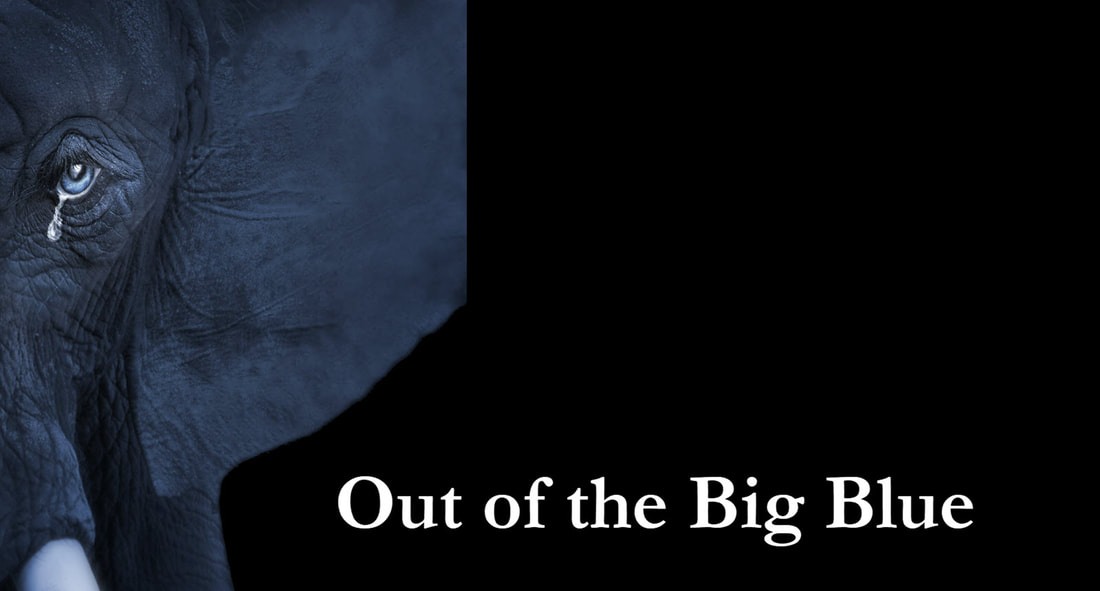Two IBM Resource Actions Hit Home and Family
|
|
Date Published: June 4, 2021
Date Modified: June 30, 2024 |
My family experienced two Resource Action (R.A.) Days in 2003, within a few months of each other. This is the story of those back-to-back experiences, which occurred after Lou Gerstner said he was going to put an end to them. Evidently Sam Palmisano didn't read Lou's memo.
At least Gerstner was correct in one respect: they are the equivalent of Chinese water torture.
At least Gerstner was correct in one respect: they are the equivalent of Chinese water torture.
How Resource Actions Affect Family
Out of the Big Blue
In January my new sales manager called me at my home office. “Pete, layoffs may be hitting the Sales and Distribution Division (S&D). You’ve been a wonderful employee, you’ve performed well, and I’m giving you as much time as I can, but you are on my list to be targeted for a layoff. If you haven’t found another job in the next thirty days, you will get 'The Letter.' ”
|
The call came out of the blue
|
“The Letter” rang in my ears.
I had never seen "The Letter." But at the time, it was the Mark of Cain—by next month you would be gone.
My stomach tightened. I heard a question escape: “Why me?” “You’re just at the wrong place at the wrong time. They’ve decided they don’t want traveling sales reps anymore. |
"They’re eliminating the remote coverage out of Austin, and as you know, we already have someone in Austin covering central Texas.”
I thought back to my decision to cover the Midwest United States. I had relinquished Central Texas to an Austin newlywed. I had always traveled anyway. My wife and I had gotten used to it, and since many of my peers would not travel, it meant job security. Now I was in trouble because of it.
“Will you support me looking for another job?” I asked.
“Will you support me looking for another job?” I asked.
|
“Pete, sure I will, but since you didn’t make quota last year, you’re now rated a 3. That limits your options. You can only move within the Sales and Distribution Division. No other IBM division will take a poor performer.”
I could feel the noose tightening—“poor performer” set off alarms. As always, a 1 walks on water, a 4 needs to look for work. What I was about to learn was that a 3 also put up impregnable barriers.
“But my last 3 was almost eighteen years ago. I was just giving direct sales a try.” “The only appraisal that counts is the one this year.” This was a new breed of IBM manager, with a new set of supporting rules. His hands were tied. He had no leverage, no authority to make exceptions. He was powerless. |
Wrong Division and Wrong Time
“I thought I was in the Software Group?” I stammered. “All my executive contacts are there. In Software Group, I could call in favors.”
It was hard to tell if this conversation affected him or not—he responded very factually, “Pete you’re in Sales and Distribution. With this appraisal you’ll need the approval of the accepting division’s senior vice president to move. I’m sorry, Pete.”
“Senior vice president” meant one of the CEO’s direct reports. The more I twisted and turned, the tighter the noose drew.
But he was giving me a head start. I held my breath as I asked, “If another manager calls you, I’ll need you to tell them that my 3 rating is just because I didn’t make quota in some pretty tough years; that my performance, other than making quota, is exemplary. Are you comfortable with that statement?”
“No problem, Pete. Your appraisal is about missing quota. Nothing personal, it’s just the condition of IBM sales right now. Not many folks are getting good appraisals.”
Now I had to face the next hurdle. Somehow the division I worked in had changed. For the previous two years, I had been isolated in my home office. I worked alone with no face-to-face contact with my manager or any executives. The home office had become my greatest liability. I might as well have been in a different company.
The first week passed in a blur as I fumbled around IBM’s archaic internal job application system—a 1980s mainframe remnant. S&D was buttoned up tight. Even offers to relocate at my own expense fell on deaf ears. It became obvious that jobs were filled before being posted—experienced managers ensuring they had their candidate in the queue. I lost precious time working within a broken system.
It was hard to tell if this conversation affected him or not—he responded very factually, “Pete you’re in Sales and Distribution. With this appraisal you’ll need the approval of the accepting division’s senior vice president to move. I’m sorry, Pete.”
“Senior vice president” meant one of the CEO’s direct reports. The more I twisted and turned, the tighter the noose drew.
But he was giving me a head start. I held my breath as I asked, “If another manager calls you, I’ll need you to tell them that my 3 rating is just because I didn’t make quota in some pretty tough years; that my performance, other than making quota, is exemplary. Are you comfortable with that statement?”
“No problem, Pete. Your appraisal is about missing quota. Nothing personal, it’s just the condition of IBM sales right now. Not many folks are getting good appraisals.”
Now I had to face the next hurdle. Somehow the division I worked in had changed. For the previous two years, I had been isolated in my home office. I worked alone with no face-to-face contact with my manager or any executives. The home office had become my greatest liability. I might as well have been in a different company.
The first week passed in a blur as I fumbled around IBM’s archaic internal job application system—a 1980s mainframe remnant. S&D was buttoned up tight. Even offers to relocate at my own expense fell on deaf ears. It became obvious that jobs were filled before being posted—experienced managers ensuring they had their candidate in the queue. I lost precious time working within a broken system.
Work and Family Relationships Matter
|
My wife was at my side the whole time
|
Through all of this my wife stood by my side. She constantly said, “We will get through this.” My kids never knew what was going on, but they heard my temper flare and my patience grow shorter.
I needed to find people who knew my history. I had to put my relationships to work. For several days I worked the IBM organization chart. I started at the CEO level and worked my way through every executive I had worked with and could possibly call up for assistance. I needed one of them to take my case forward. Then I called peers in their organizations that I knew. I needed to find an unpublished job opening. |
Jobs were disappearing everywhere. S&D was hit the hardest. I called for days, working my way through all my old contacts. Many said they had been getting similar calls. Many said, emotionally, that they had nothing and knew of nothing. Most treated it with disbelief.
Some said, “Pete, IBM won’t let that happen to you.”
They thought in twentieth-century terms, as if IBM were still a living, breathing, caring being.
I would say, “If I don’t have a job by the time they print that package, I’m history.” But as I felt the pain I was causing, I would add, “I’ll make it. Keep me in mind if you hear of anything opening up. I’ll check back.” I turned fifty that year—a scary time to be starting over again. But I kept at it.
Suddenly, I found one! After hundreds of calls, a single chance at continued employment. Donna Briar and I had worked together when I was the OS/2 Warp Server brand manager and again on the OS/2 worldwide sales and support teams. There was a market management position open on her team. I asked if she would recommend me.
“Pete, my God, are you kidding?”
“Has it been posted yet?”
“I don’t think so. The person is just leaving.”
This was the first positive sign in almost two weeks. I had found that elusive unadvertised opening and I was the first in line.
John Carter was a vice president in Software Group (SWG). I had never worked directly for him, but I had been constantly around him in meetings, consultations and critical decisions during my tenure as Warp Server brand manager. We worked together again as we extended OS/2’s life with Workspace on Demand. With many self-doubts, I called him directly.
“John, I don’t know if you would remember me or not, this is Pete Greulich.”
“Pete, it’s great to hear from you.” The instant recognition caught me by surprise. “Donna told me you would be calling. What can I do?”
All I could think was how much I owed Donna right then.
“John, I’m looking for work.” I didn’t want to get into the desperation I was feeling.
“I have an opening,” he said. “You need to get with my first line manager, though. I’ll give him a call, but you know it’s his team and I won’t tell him to hire you. You’ll have to pass his interview.”
“I understand, John. That’s all I can ask.”
Some said, “Pete, IBM won’t let that happen to you.”
They thought in twentieth-century terms, as if IBM were still a living, breathing, caring being.
I would say, “If I don’t have a job by the time they print that package, I’m history.” But as I felt the pain I was causing, I would add, “I’ll make it. Keep me in mind if you hear of anything opening up. I’ll check back.” I turned fifty that year—a scary time to be starting over again. But I kept at it.
Suddenly, I found one! After hundreds of calls, a single chance at continued employment. Donna Briar and I had worked together when I was the OS/2 Warp Server brand manager and again on the OS/2 worldwide sales and support teams. There was a market management position open on her team. I asked if she would recommend me.
“Pete, my God, are you kidding?”
“Has it been posted yet?”
“I don’t think so. The person is just leaving.”
This was the first positive sign in almost two weeks. I had found that elusive unadvertised opening and I was the first in line.
John Carter was a vice president in Software Group (SWG). I had never worked directly for him, but I had been constantly around him in meetings, consultations and critical decisions during my tenure as Warp Server brand manager. We worked together again as we extended OS/2’s life with Workspace on Demand. With many self-doubts, I called him directly.
“John, I don’t know if you would remember me or not, this is Pete Greulich.”
“Pete, it’s great to hear from you.” The instant recognition caught me by surprise. “Donna told me you would be calling. What can I do?”
All I could think was how much I owed Donna right then.
“John, I’m looking for work.” I didn’t want to get into the desperation I was feeling.
“I have an opening,” he said. “You need to get with my first line manager, though. I’ll give him a call, but you know it’s his team and I won’t tell him to hire you. You’ll have to pass his interview.”
“I understand, John. That’s all I can ask.”
Too Many Executives Ignore the Effects of Resource Actions
|
The clock kept ticking. I didn’t know the first line manager, and my interview with him was at IBM’s annual software training in Las Vegas. It turned out I was one of hundreds looking for work at the event. It had morphed from an education event into an internal job fair.
The desperation was rampant. It consumed one-on-one conversations; it echoed down every hallway; you heard it in every hushed “You too?” It was a bloodbath, even as executives stood in our midst and declared on stage how great a year we had in front of us. |
The annual training event in Las Vegas had morphed into an internal job fair.
|
When I met John’s first line manager for my interview, it started off ablaze: “You know John told me I don’t have to hire you. He was real clear about that.”
Was he judging my reaction? Was this the “stress question” that we had all been taught in IBM New Manager’s school? If so, it was working. Fear crept in. This was my only opportunity. I couldn’t go home empty-handed.
I responded quickly, “I expected as much. I don’t like folks that use executive pressure to get jobs. Never cared for the ‘good old boy network,’ but in this case I happened to know both Donna and John. I hope you don’t feel like you got caught in the middle. I absolutely know it is still your decision.”
He immediately lightened up. “Well, according to John you are the closest person to someone who walks on water in this company, so let’s talk.”
Two days before the letter was slated to arrive, Software Group approved my return.
Was he judging my reaction? Was this the “stress question” that we had all been taught in IBM New Manager’s school? If so, it was working. Fear crept in. This was my only opportunity. I couldn’t go home empty-handed.
I responded quickly, “I expected as much. I don’t like folks that use executive pressure to get jobs. Never cared for the ‘good old boy network,’ but in this case I happened to know both Donna and John. I hope you don’t feel like you got caught in the middle. I absolutely know it is still your decision.”
He immediately lightened up. “Well, according to John you are the closest person to someone who walks on water in this company, so let’s talk.”
Two days before the letter was slated to arrive, Software Group approved my return.
A Game of Musical Chairs: The Second Resource Action
|
My daughter drew this image entitled "The Letter" after reading this article
|
Unfortunately, I had only experienced the first downbeat in a Texas two-step. The second came sixty days later, when rumors began circulating that another round of layoffs was imminent. Then a date was leaked.
I went into John’s office. “John, it’s hard to take another layoff threat so soon. Are we on tap for tomorrow? If so, I need to prepare my family for another round. You know it’ll hit the papers and media. I need to let my wife know. If she heard this at work, after what we just went through—” “Pete, we are okay,” he interrupted. John understood the worry in my voice. “You can’t tell anyone, but it isn’t our team this time.” The next morning, as my wife was walking out the door, I stopped her and told her she might hear of layoffs in Software Group with a big emphasis on my Tivoli division. I told her it would be a big one—it might even make national news—but that we were okay. She gazed at me hard as if to discern any hidden fear. |
I repeated firmly, “We are not affected.”
Not sensing anything, she said, “Thank you, if I had seen this on the news, I’m not sure what my reaction would have been. It would be hard to stay focused on teaching. I would be worried about you.”
“It’s still going to be a hard day,” I said.
The layoffs made the morning news. It went national quickly. People’s lives became statistics. I couldn’t face my coworkers. I had seen too many cry in bathrooms, stand shell-shocked outside of a first line manager’s door or leave work early to tell their family.
So I left early—nothing productive ever gets done on R.A. Days anyway.
That afternoon, I looked up from my home office desk to see my wife standing at the door. Her face was as white as a ghost. I thought someone had died.
“What’s wrong?” I asked.
“You’re supposed to be at work. You told me this morning . . .” Her voice dropped to an almost inaudible level, but I could see the question formed by her lips, “Is it starting again?”
“My God, no! I just came home early. It was just too hard to watch everyone being told. It didn’t affect us.”
There was no glee in my voice. It would have been disrespectful to those who were at home having a different conversation with their spouse.
Not sensing anything, she said, “Thank you, if I had seen this on the news, I’m not sure what my reaction would have been. It would be hard to stay focused on teaching. I would be worried about you.”
“It’s still going to be a hard day,” I said.
The layoffs made the morning news. It went national quickly. People’s lives became statistics. I couldn’t face my coworkers. I had seen too many cry in bathrooms, stand shell-shocked outside of a first line manager’s door or leave work early to tell their family.
So I left early—nothing productive ever gets done on R.A. Days anyway.
That afternoon, I looked up from my home office desk to see my wife standing at the door. Her face was as white as a ghost. I thought someone had died.
“What’s wrong?” I asked.
“You’re supposed to be at work. You told me this morning . . .” Her voice dropped to an almost inaudible level, but I could see the question formed by her lips, “Is it starting again?”
“My God, no! I just came home early. It was just too hard to watch everyone being told. It didn’t affect us.”
There was no glee in my voice. It would have been disrespectful to those who were at home having a different conversation with their spouse.
|
Seeing her physical discomfort I added, “Not financially anyway.”
She came into my office and sat stiffly on the edge of the couch. “When I saw you were home, when I saw your car in the garage,” her voice faltered, “I got sick in the downstairs bathroom.” I touched her hand and said, “I’m so sorry. You were so strong before. I never knew you were affected so deeply by what we went through.” |
Her voice faltered - she felt sick
|
She paused for a moment. “Until this moment, neither did I.” No tears flowed, but they swelled up in her eyes as she recalled the details of just two months prior. The homeless elephant in the room—twenty-one years after Tom and my coworkers removed it—had returned.
My wife felt it. I did, too.
But until this moment we had never acknowledged it.
My wife felt it. I did, too.
But until this moment we had never acknowledged it.







